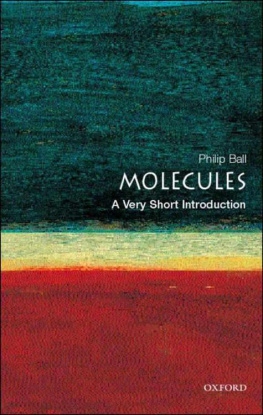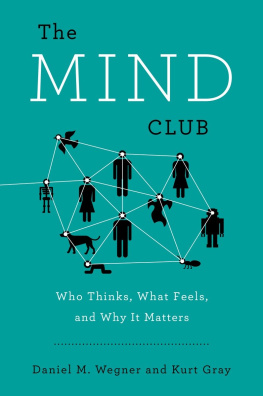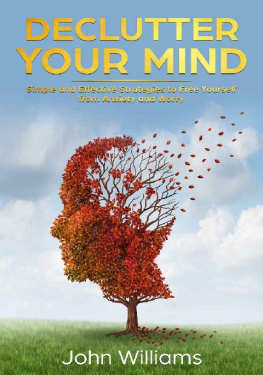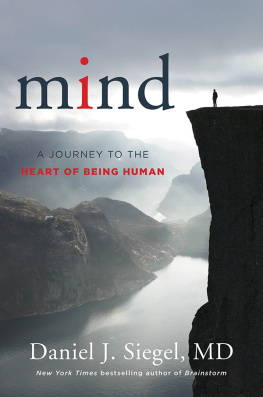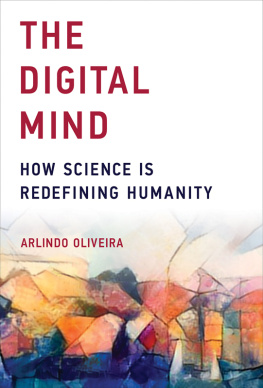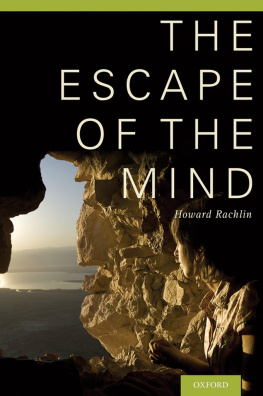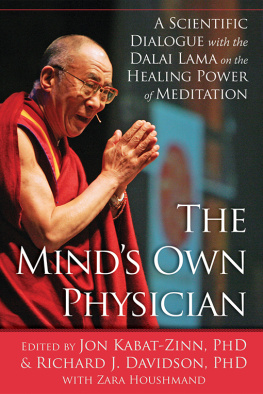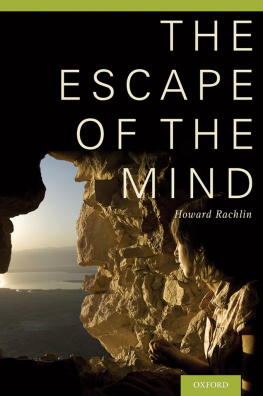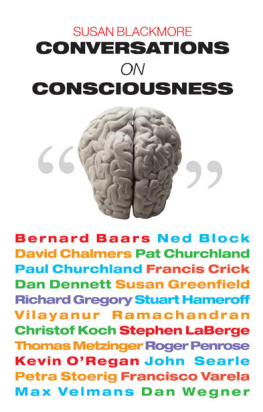About the Author
Philip Ball is a freelance writer and broadcaster, and was an editor at Nature for more than twenty years. He writes regularly in the scientific and popular media and has written many books on the interactions of the sciences, the arts, and wider culture, including H2O: A Biography of Water, Bright Earth: The Invention of Colour, The Music Instinct, and Curiosity: How Science Became Interested in Everything. His book Critical Mass won the 2005 Aventis Prize for Science Books. Ball is also a presenter of Science Stories, the BBC Radio 4 series on the history of science. He trained as a chemist at the University of Oxford and as a physicist at the University of Bristol. He is the author of The Modern Myths. He lives in London.
Acknowledgements
Several years ago, an American science magazine asked me if I might consider writing an article about efforts to open the black box of artificial intelligence: to figure out how todays AI systems are really thinking as they convert input to output. I already knew that, because of the way such AI is designed, the answer is far from obvious; we know it works, and often rather well, but were not sure how. And this is, after all, not so different from the situation we face in trying to understand our own minds. Being inside the black box doesnt necessarily help; in some ways it makes the question harder to understand and to address.
After reading the paper that triggered the request, I started to dig around and to make inquiries with experts working on AI. But it was frustratingly hard to find advisers who seemed able to comment on the wider issue of how AI thinks. I now know that this was not because no one in AI ponders that question but because I was looking in the wrong places. One lead, however, directed me towards Murray Shanahan, professor of cognitive robotics at Imperial College London, who had advised on Alex Garlands 2014 film Ex Machina and has consulted for the AI company DeepMind. Murray was just the person I needed except that he was too busy at that point to offer comments. But he generously sent me an electronic copy of his seminal 2010 book Embodiment and the Inner Life: Cognition and Consciousness in the Space of Possible Minds, which was packed with rich ideas. The subtitle, Murray explained in the book, came from a paper published in 1984 by computer scientist Aaron Sloman of the University of Birmingham titled The Structure of the Space of Possible Minds. I found a copy of Aarons paper on the web, and managed to get in touch with him, now an emeritus professor. I got more than I bargained for: in response to my questions, Aaron sent me several long emails filled with thoughts, ideas, tangents and much else. I was intrigued and I still had absolutely no idea what to do with any of this.
Somehow, the trail led me also to a project called Kinds of Intelligence at the Leverhulme Centre for the Future of Intelligence at Cambridge University. (Maybe it was Murray who sent me there: he is a spoke leader of the project.) I contacted one of the senior research fellows in the team, philosopher of cognitive science (what a topic!) Marta Halina, and the next time I was up in Cambridge I arranged to meet her for a chat. So we chatted, and she suggested some other people I might talk to. Still I had no clear picture of where any of this was going, or whether it could ever be an article. But I couldnt let it go.
In 2019 I was invited to spend the summer at Harvard as a visitor in the Medical Schools department of systems biology. It was the kind of opportunity you would spend your life regretting if youd not seized it. I quickly discovered that round the corner from the house where my family and I were staying in Brookline was one of the most wonderful local public libraries Ive ever come across, which included a section that sold off excess stock for a dollar a piece. This was a mixed blessing, as I quickly acquired far more titles than my baggage allowance for the return flight would permit. One of the first of these was The Biological Mind by neuroscientist Alan Jasanoff. (I never told you this, Alan, but I fear it was personally autographed; lets assume it had been a gift too far for a similarly over-freighted visitor.) I realized that Alan was just up the road at the Massachusetts Institute of Technology and so I arranged to stop by for a chat.
And suddenly it all became clear. I had never written that article because it wasnt an article at all. There was far, far too much to explore here, and it needed to be a book.
There could have been no better place to start writing it than Boston, a nexus of interdisciplinary research on cognition, neuroscience, psychology, AI, robotics and all things minded. It is odd how sometimes things fall into place. No sooner had I realized what my next book had to be about than I visited Neil Gershenfeld at MITs Media Lab, who, on discovering I had recently written about efforts to put theories of consciousness under experimental scrutiny (another spin-off from my attempts to mine minds), enrolled me to speak on the subject at a forthcoming workshop on animal minds specifically, on efforts to use information technologies to help us understand the communications and minds of other species, and perhaps to help them understand one another. Neil and colleagues had convened a glittering array of experts for this closed meeting, and I could have wished for no better opportunity to launch me into the world of animal cognition and other minds.
Of course, the subject matter for this topic wont in truth fit even into a book: it demands an encyclopaedia. In The Book of Minds I have tried to boil down what seemed to me to matter most, but I dont claim to have done more than start a conversation or rather, provide pointers to a conversation that is already happening, and has been to some degree ever since Aarons paper. I believe that conversation is now one of the most exciting, most challenging and ambitious, in all of science. There is an abundance of solid research behind it, but also necessarily still a strong element of speculation, and it is all awash with matters of philosophy and ethics which I consider to be a good thing.
The process has brought me into contact with scientists, engineers, thinkers and doers in a wide range of disciplines, all of whom have contributed towards shaping this book whether they knew it or not. I hope I have not omitted anyone from this list of those to whom I am immensely grateful: Bjrn Brembs, Matthew Cobb, David Cox, Anna Dornhaus, Uta Frith, Neil Gershenfeld, Jeremy Gunawardena, Marta Halina, Thomas Hills, Alan Jasanoff, Arik Kershenbaum, Christof Koch, Marcelo Magnasco, Jennifer Mather, Randolf Menzel, Kevin Mitchell, Melanie Mitchell, Diana Reiss, Anil Seth, Murray Shanahan, Aaron Sloman, Susanne Still, Giulio Tononi, Tomer Ullman and Sara Imari Walker. Melanie, Anil and Anna were particularly generous with their time and advice in reading through the draft manuscript.
My time in Boston was catalytic for this project, and was made possible by the generosity of Galit Lahav and Becky Ward at Harvard Medical School. There I had the pleasure of being able to discuss the ideas at a formative stage with my US editor Karen Merikangas Darling, whose support over several years now I have deeply appreciated. It has been a pleasure too to be working once again with my two editors at Picador, Philip Gwyn Jones and Ravi Mirchandani. All this was made possible, as ever, by the help and encouragement of my agent Clare Alexander, and of my family.
And to Michael at Quanta: sorry, I never wrote you that article. It grew up.
Philip Ball
London, December 2021
ALSO BY PHILIP BALL






